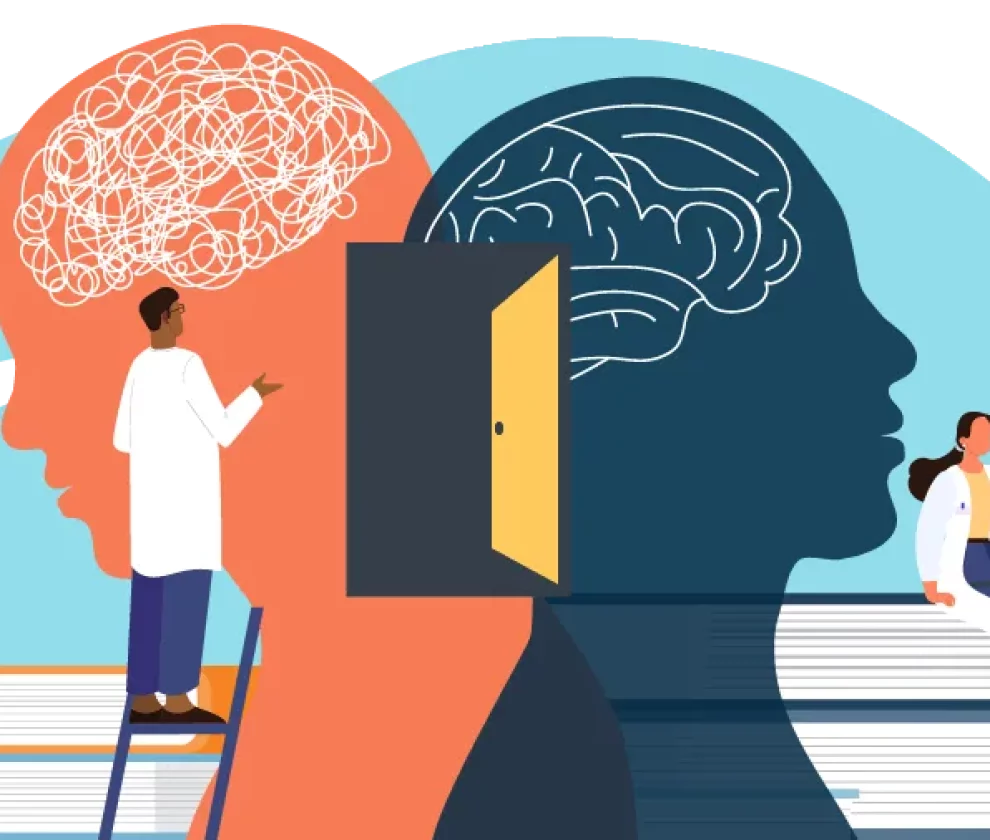You’ve heard of co-dependency and control issues. It starts small. You check their location. You offer help they didn’t ask for. You’re just “being there,” right?
But underneath the caretaking and constant worry, something deeper might be going on—something that feels like love, but is actually fear.
Co-dependency and control often go hand in hand, and the line between them isn’t always clear. If you’ve ever wondered, “Am I too much?” or “Why do I feel so responsible for everyone else?”—you’re in the right place. It’s okay to feel overwhelmed and seek treatment.
The Sneaky Connection Between Co-Dependency and Control
Co-dependency isn’t just about being “overly caring.” It’s about tying your identity and emotional well-being to someone else’s needs, moods, and behaviors. When that happens, control often becomes the strategy—subtle, quiet, and well-intentioned, but still control.
You might not think of yourself as controlling. You’re just trying to prevent disaster, soothe their stress, fix the situation, keep the peace. But when your nervous system is wired to someone else’s every move, you’re not just “helping”—you’re managing. And that often stems from fear: fear of abandonment, rejection, conflict, or feeling unworthy on your own. This can even lead to panic disorder, which some say is a disability.
This dynamic is common in relationships where one person feels responsible for the other, instead of responsible to them. Instead of two adults operating independently, one becomes the caretaker and the other the cared-for—or the avoided. Over time, this pattern can breed resentment, anxiety, and emotional exhaustion on both sides.
Understanding this link is the first step toward untangling it.
Signs You’re Using Control to Keep the Peace
You don’t have to raise your voice or issue ultimatums to be controlling. Sometimes, control looks like self-sacrifice. It looks like always anticipating someone else’s needs, smoothing things over, and avoiding any situation where things might get messy or unpredictable.
Here are some signs of covert control rooted in co-dependency:
- You constantly give advice, even when it’s not asked for
- You struggle to say no without guilt
- You take responsibility for others’ emotions or decisions
- You monitor someone’s behavior “just to make sure”
- You feel uneasy when you’re not needed
- You believe your love or support can “save” them
- You have a hard time trusting others to handle their lives
- You over-explain yourself or walk on eggshells
These behaviors usually come from a good place—love, loyalty, a desire to help. But they’re also ways of managing discomfort by staying in control. The catch? That control often backfires, leading to more disconnection, not less. If you’re struggling with mental health contact us today.
Why It Feels So Hard to Let Go
Letting go sounds simple. But for someone with co-dependent patterns, it can feel terrifying—like you’re abandoning the person you love or giving up on the relationship altogether. In reality, letting go is often about releasing control and reclaiming your own sense of self.
Co-dependency often begins in childhood. If you grew up in a home where love had to be earned or where chaos was the norm, you may have learned to survive by becoming hyper-attuned to others’ emotions.
You became the fixer, the peacemaker, the “good one.” These roles helped you feel safe, but they also taught you that your value depends on what you do for others—not who you are.
That’s why letting go feels so threatening. It’s not just about the other person—it’s about your identity. Who are you if you’re not needed? What happens if you stop trying so hard?
The truth is, letting go doesn’t mean you stop caring. It means you start caring for yourself, too.
When “Helping” Crosses the Line
Helping someone and controlling them can feel dangerously similar—especially when your intentions are good. You may believe you’re just being supportive, but if your help isn’t asked for or creates pressure, it’s time to pause.
Here’s a hard truth: constantly “being there” can keep someone from growing. When your partner, friend, or loved one struggles, you might rush to fix it, explain it away, or take over their responsibilities. Over time, this creates an imbalance. They stop learning to solve their own problems, and you carry the emotional weight of two people.
This pattern isn’t generosity—it’s self-abandonment with a halo on it.
And when your help is tied to fear (“If I don’t do this, they’ll fall apart”), it’s no longer just support. It’s an attempt to control outcomes you’re scared of. Healthy relationships require space to fail, learn, and be responsible. If you’re afraid of stepping back, that’s your work to explore—not their burden to carry.
How to Break the Cycle (Without Abandoning Yourself)
Breaking co-dependent and controlling patterns doesn’t mean becoming cold or distant. It means developing boundaries that protect your peace and allow others to take responsibility for their lives.
Start small. Notice when you’re about to give unasked-for advice. Practice saying, “I trust you’ll figure it out.” Resist the urge to fix. Let silence be uncomfortable. Let others feel uncomfortable. Let yourself feel uncomfortable.
This takes time. Your brain may scream, “You’re being selfish!” But self-abandonment is not compassion—it’s fear dressed up as loyalty.
Building healthier patterns starts with:
- Setting limits (and holding them)
- Checking in with your motives before you act
- Practicing saying no without explanation
- Getting support from a therapist or group that understands co-dependency
- Naming your needs instead of burying them
These changes can feel like betrayal at first, especially if your identity has been built around caregiving. But you’re not betraying anyone by taking your hands off the wheel. You’re finally letting go of a role that’s been running your life.
The Surprising Freedom in Surrender
When you release control, you create space—for growth, for real connection, for peace. It’s not about abandoning the people you care about. It’s about trusting that you don’t need to manage their choices, emotions, or reactions in order to be okay.
That’s the freedom most co-dependent people don’t know they’re missing.
Surrender isn’t weakness—it’s a powerful boundary with reality. It’s choosing to stop trying to bend the world into something you can predict or manage. And in that space, something beautiful can happen: you learn to trust yourself, to tolerate discomfort, and to show up in relationships as a whole, sovereign person.
Letting go might feel like you’re losing control of your relationships, but the opposite is true. You’re gaining control over your life. Over your time. Over your energy. You’re building a version of love that doesn’t depend on fear, pressure, or emotional caretaking.
That’s not giving up. That’s freedom.
Let That Sink In
You don’t have to keep managing, fixing, or proving your worth through someone else’s stability. Co-dependency and control might feel like safety, but real peace comes from letting go. It’s okay to step back. It’s okay to choose yourself.
The work is hard—but it’s worth it. Because the most powerful kind of love you can offer is the kind that doesn’t cost you your own freedom. Contact us today to learn more about our treatment programs.




